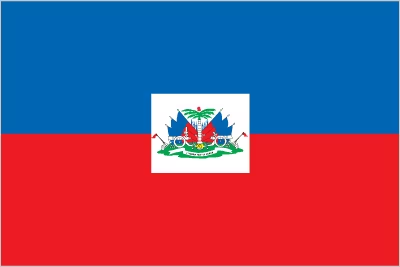
U.S. Department of Homeland Security Secretary Alejandro Mayorkas announced on December 5, 2022, that he will extend and re-designate Haiti for Temporary Protected Status (TPS). TPS protects aliens from removal if they entered the United States prior to a country’s TPS designation and provides beneficiaries work authorization. Congress limited TPS designation periods to no longer than 18 months, providing the DHS secretary options to extend or terminate given specific conditions.
Under section 244(b) of the Immigration and Nationality Act TPS designations can only be made after the secretary determines that a country is experiencing at least one of the following circumstances:
- An ongoing armed conflict within the country such that requiring the return of nationals to that country would pose a serious threat to their personal safety;
- A natural or environment disaster resulting in a substantial, but temporary, disruption of living conditions and the foreign state is temporarily unable to adequately handle the return of their nationals; or
- “Extraordinary and temporary” conditions in the foreign state that prevents nationals of the state from returning safely (unless the Secretary determines that permitting such aliens to remain temporarily in the United States is contrary to the national interest of the United States).
In its press release, DHS indicated that Haiti’s TPS designation was being extended and re-designated because Secretary Mayorkas determined that Haiti is undergoing “extraordinary and temporary conditions,” including “a prolonged political crisis; grave insecurity and gang crime that worsened a dire economic situation; a lack of access to food, water, fuel and health care during a resurgence of cholera; and the recent catastrophic earthquakes.” DHS, however, has not yet published its notice or estimate of the number of nationals who would be eligible for TPS in the Federal Register, as section 244(b)(1) of the INA requires.
This announcement follows DHS’s recent continuation of TPS benefits for El Salvador, Haiti, Nicaragua, Sudan, Honduras, and Nepal announced on November 16, 2022. That action, however, is related to litigation and did not cover aliens who have been newly granted TPS under the previous designation of Haiti in 2021, but who did not have TPS at the time the designation was announced. It also would not have affected any Haitians who have entered and remained in the United States, whether legally or illegally, since that designation.
Secretary Mayorkas’s re-designation, however, presents interesting policy questions in light of the surge of illegal border-crossers from Haiti since 2021. By re-designating Haiti for TPS rather than merely extending the current designation, aliens who have entered the country after the 2021 designation are now eligible for TPS’s protection from removal and work authorization, enlarging the potential class of beneficiaries.
Notably, encounters of Haitian nationals by Border Patrol in the Southwest Border Region have spike significantly since 2021. In Fiscal Year 2020, CBP reported encountering 4,535 Haitian nationals in the Southwest Land Border region. That number jumped to 47,255 in FY 2021 and 53,910 in FY 2022. Since October 1, 2022 (the beginning of FY 2023), the Border Patrol has already reported 6,717 encounters. Any of these individuals who have been present in the United States since November 6, 2022, accordingly, would be eligible for TPS under this re-designation (assuming they meet all statutory eligibility standards).
Of this total (112,417), Border Patrol has reported expelling 23,089 Haitian nationals under its Title 42 public health authorities. The remainder (89,328) have been processed under Title 8, the immigration authorities and, as a result, are likely still in the United States. DHS has not provided data on how many of Haitian nationals processed under Title 8 have remained in the United States; however, as stated above, DHS is required to report its estimate of the number of Haitian nationals who would be eligible for TPS in a Federal Register notice.
Typically, aliens must have been present in the United States on or before the date a country is designated for TPS to be eligible. This is an intentional feature designed to prevent TPS from encouraging additional illegal immigration to the United States. The practice of re-designating rather than merely extending TPS, however, allows DHS to continue to increase the eligibility pool with questionable legal authority.
